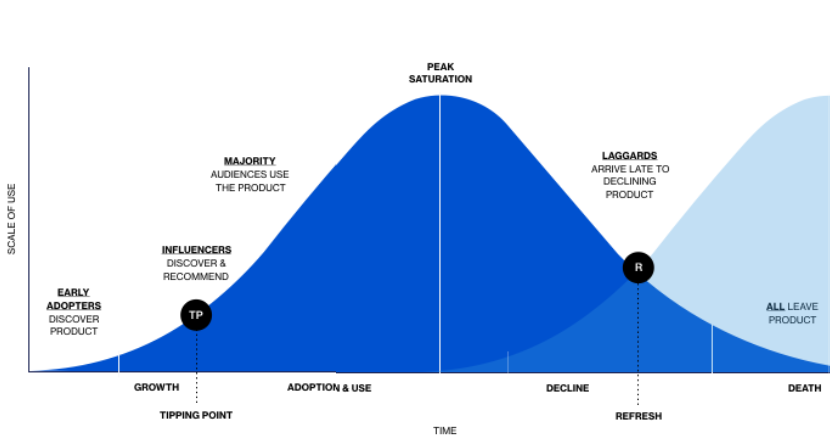Think Different.
This was Apple’s marketing slogan from 1997-2002. It was perceived as a brazen-faced response to IBM’s “THINK”.
Tech brands were long accustomed to advertising the functional benefits of their products. Only in the years since has tech acquired a personality. It is advertising that has strengthened the importance of being ourselves. We are told by brands every day that we are innovators, trailblazers, and trendsetters. After all, we, the younger generation are tomorrow’s people. We have been told over and over again to express our originality. We are exactly who we say we are and no one can tell us otherwise.
It seems that most brands are beginning to nurture their relationship with younger people, and it’s a challenge. Advertising no longer teaches younger people how they should live, and as a result, brands have failed to raise citizens with common attitudes and values. After all, who’s to say what a good life is? Who’s to say what we should purchase, and why?
We aren’t fascinated by the technology or quality of the products anymore. Our freedom of choice has increased and so has our opportunity to build a unique personality from brands. We choose those that align with our lifestyle, and more importantly, how we would like others to perceive our lifestyle.
Advertising has always taken advantage of our intuitions – but now we are thinking logically. We are carefully curating our lives. We have lots to choose from, as well as a stream of platforms to show others.
Any brand’s goal is to drive awareness, sales and create trends amongst their target audience. It therefore seems counterintuitive when brands tell us to be different to everybody else. Is it the fault of brands themselves that a more entitled, assertive younger demographic exists? Or is it a combination of advertising and the self-centered, vanity-driven nature of social media? Has advertising changed to fit a world where younger consumers are driven by personality over product?
Truth is, we have less in common. We don’t meet to chat around the water cooler anymore. Trends exist in our own time and on a much smaller, far shorter scale. Ultimately, in a world where we can see what everybody else is up to – trends don’t last long. As soon as we see everybody else catching on – we want something else. It therefore takes strategic expertise to forecast a trend. It is also important to remember that brands must execute fast. What is trendy now, will not be in a few weeks.
But who decides what a trend is? Maybe, instead of looking outwards for trends, brands should look to create them themselves – rapidly. And perhaps in the future, the better brands will be those we look to for inspiration – those who cultivate brand new experiences we want to be a part of (for a few weeks)…

